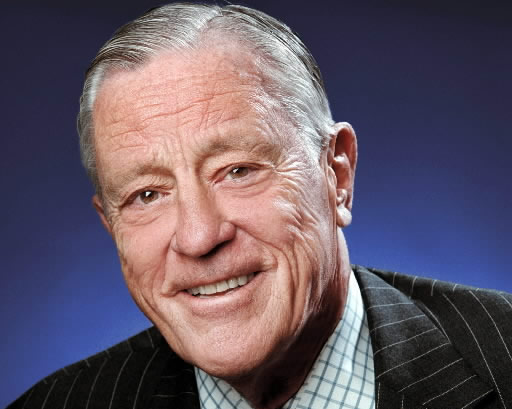
10-27-14 The last hurdle you faced before you were hired at The Washington Post was a face-to-face interview with Executive Editor Benjamin C. Bradlee.
In late 1980, I arrived at his office ready for a confrontation.
My good friend, Ward Sinclair, a Post investigative reporter who was shepherding me through the hiring process, had warned me that Bradlee often glared at a wannabe hire before asking, “Why should I hire you?” Depending on his mood, he might phrase it as “Why in the hell should I…”
Ward said it was Bradlee’s way of seeing if a news reporter had a spine. Bradlee didn’t like reporters who were easily intimidated.
Thanks to Ward, I’d come prepared for my interview. Inside my shirt pocket was a list of stories that I planned on showing him when Bradlee confronted me. I had practiced my reply. “Because I can write stories like these better than anyone else.” It was known in journalism circles that Bradlee loved what he described as “holy shit” stories – ones that would make readers utter those expletives when reading them.
I took my seat before the legendary editor ready to pounce. Glancing at me over his reading glasses, he said: “I don’t think I’ve ever hired anyone from Tulsa, Oklahoma.”
I replied in a loud voice: “Why not!”
I was reaching for my story list when I realized that my accusatory reply had surprised Bradlee — and not in a good way. I immediately explained that I had been tipped off about his gruff interview tactics.
Bradlee broke into a smile, mentioned that he had a bad cold and told me he didn’t have the energy to be abrasive.
Despite our initial exchange, he hired me.
Benjamin C. Bradlee was the first blue blood I’d ever met and he shattered all of my images of what that pedigree represented. Martha Sherrill described him best in a tribute that she wrote for The Washington Post Style section on the morning after he died at age 93.
His rakish persona was the real thing, seemed sprung from his marrow, as though somebody in his noble ancestral line had bedded (one of his favorite words) a pirate or gunslinger.
I was not close to Bradlee, and certainly was not part of his inner circle. To be truthful, I was not liked by three of his closest associates. But when I worked at the Post my exchanges with him were always cordial and memorable and when I asked him to autograph a copy of his autobiography, Ben Bradlee: A Good Life, he wrote: “For Pete Earley: A longtime friend and colleague.” He had a way of aspiring young reporters, of driving us to be better. He loved being a newspaper man more than anyone I’ve ever met. And he always defended his reporters when they were criticized, even some that history later showed didn’t deserve his loyalty.
I worked for him between 1980 and 1986. Those were the Post’s best years and I became a better reporter because of him.
(Bradlee will be buried this coming Wednesday.)



